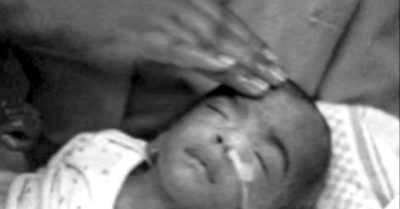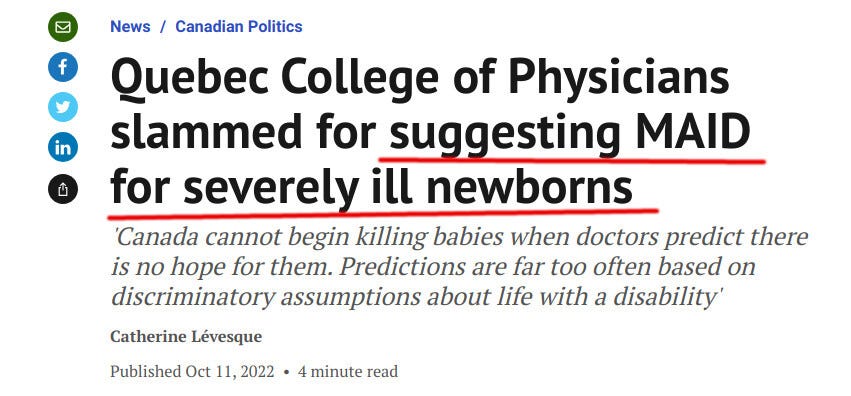Assisted Suicide for Babies Demanded by Quebec College of Physicians

All Global Research articles can be read in 51 languages by activating the Translate Website button below the author’s name.
To receive Global Research’s Daily Newsletter (selected articles), click here.
Click the share button above to email/forward this article to your friends and colleagues. Follow us on Instagram and Twitter and subscribe to our Telegram Channel. Feel free to repost and share widely Global Research articles.
***
I apologize for using the oxymoronic term “assisted suicide for babies” in the title. An infant is not self-aware and cannot “commit suicide.” Infants want to live, eat, and be held by their parents. And yet, the Quebec College of Physicians wants to expand the Canadian “Medical Assistance in Dying” program to infants.
Watch Dr. Louis Roy, from the Quebec College of Physicians, telling the Commons’ Special Joint Committee of Medical Assistance in Dying (MAID) on Oct. 7 that his organization believes MAID can be appropriate for infants up to age one who are born with “severe malformations.”
Medical Assistance in Dying implies someone wanting to die and getting medical assistance to die in a socially approved manner with some comfort.
Infants under one year cannot possibly choose to die or request medical assistance, so the name does not exactly suit the situation. Instead of “assistance in dying,” infants will be euthanized for the convenience of the parents and doctors who no longer want to deal with problematic babies. There are other, even more disturbing reasons for this program being promoted, which we will explore.
Canada’s National Post has the details.

Quebec’s College of Physicians proposal attempts to sound sensible by referring to babies who suffer from “unbearable pain,” with euthanasia approved by a doctor and consented to by both parents. I am unsure how custodial situations would be handled and suspect that “both parents’ consent” would be disregarded in the case of non-married parents.
However, we must ask: how do we know that a baby’s pain is unbearable? We cannot ask the baby, after all. As a father of two grown children, I remember them suffering from routine illnesses where their pain seemed “unbearable.” My heart was breaking for them as they cried for hours over stomach pains and other issues, usually at night. While such pains felt desperately “unbearable” at the moment, they were temporary; fortunately, both kids grew up just fine. I learned that what seems unbearable in one moment may eventually become a distant memory.
The Quebec College of Physicians does not realize that and thinks adults can decide which infants to euthanize.
To read complete article click here
Note to readers: Please click the share button above. Follow us on Instagram and Twitter and subscribe to our Telegram Channel. Feel free to repost and share widely Global Research articles.
Featured image is from Children’s Health Defense

